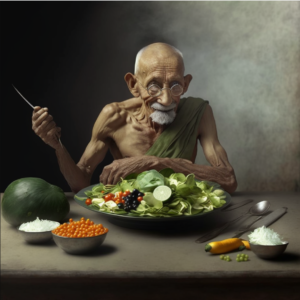 P&C drink and review an Irish Stout from Nashville, then discuss five topics in five minutes each.
P&C drink and review an Irish Stout from Nashville, then discuss five topics in five minutes each.
- Self love on Valentine’s Day. What do you think of someone who sends her love to herself on Valentine’s Day? P&C think that’s ridiculous. Love is outwardly directed, not inwardly.
- Brandon and the Chinese Balloons. Was this the most embarrassing thing for the U.S. in decades? We showed the whole world that we’re indecisive and incompetent and that we overreact when we’re caught with our pants down. A total embarrassment.
- The non-binary soprano. Pigweed took the sprouts to an orchestral performance to expose them to some genuine art. The soprano was wonderful. But … it was a they/them, and the program was full of all kinds of confusing gibberish.
- Liberal tells. What words or phrases immediately tell you that someone is a liberal? Undocumented immigrant. Always talking about gender. Everything is explained by hate or bigotry. Safe spaces. Decolonization. Problematic. Personal pronouns. Dog whistles. Privilege. Racist. Sexist. Homophobe. Transphobe. Triggered.
- Beer fasting. You think beer fasting means giving up beer. But P&C are traditionalists. They’re going to give up everything except beer for a few days, to see what it was like for the Paulaner monks in the old days.
 P&C drink “Watch out for Bears” brown ale from
P&C drink “Watch out for Bears” brown ale from  P&C drink and review
P&C drink and review  P&C drink and review
P&C drink and review  The boys drink and review Crowhill’s Henry IV homebrew, then discuss possible causes of the recent uptick in gender confusion.
The boys drink and review Crowhill’s Henry IV homebrew, then discuss possible causes of the recent uptick in gender confusion.  The boys drink and review a chai latte stout from
The boys drink and review a chai latte stout from  The boys drink and review
The boys drink and review  The boys drink and review Delicious IPA from Stone, then discuss skills they wish they had learned.
The boys drink and review Delicious IPA from Stone, then discuss skills they wish they had learned.  The boys drink and review
The boys drink and review  The boys drink and review Erdinger’s Weissbier Dunkel, then discuss developments in artificial intelligence.
The boys drink and review Erdinger’s Weissbier Dunkel, then discuss developments in artificial intelligence.  The boys drink and review Pigweed’s latest robust porter, then welcome John Wayne Jew to the show to help review “this month in woke.”
The boys drink and review Pigweed’s latest robust porter, then welcome John Wayne Jew to the show to help review “this month in woke.”  With special guest Longinus (a vegetarian), the boys drink and review a small beer, following a recipe from George Washington, then discuss vegetarianism.
With special guest Longinus (a vegetarian), the boys drink and review a small beer, following a recipe from George Washington, then discuss vegetarianism.  Along with special guest Longinus, the boys drink and review Beam Me up, Stouty (a coconut stout) from Saugatuck Brewing, then discuss “One Day in the Life of Ivan Denisovich.”
Along with special guest Longinus, the boys drink and review Beam Me up, Stouty (a coconut stout) from Saugatuck Brewing, then discuss “One Day in the Life of Ivan Denisovich.” 